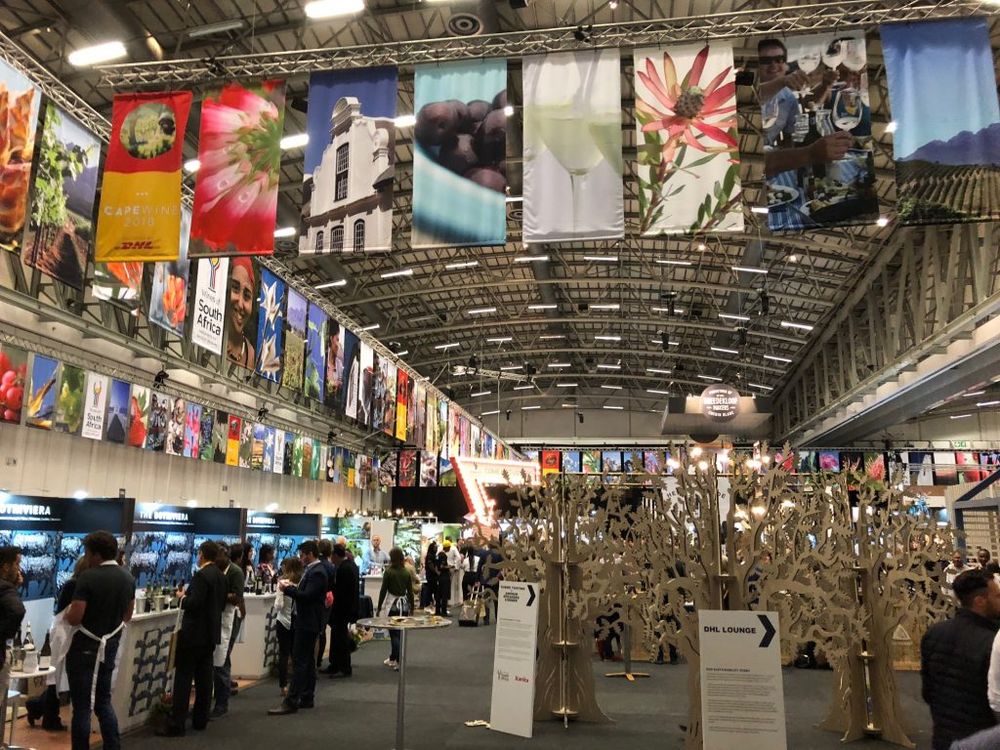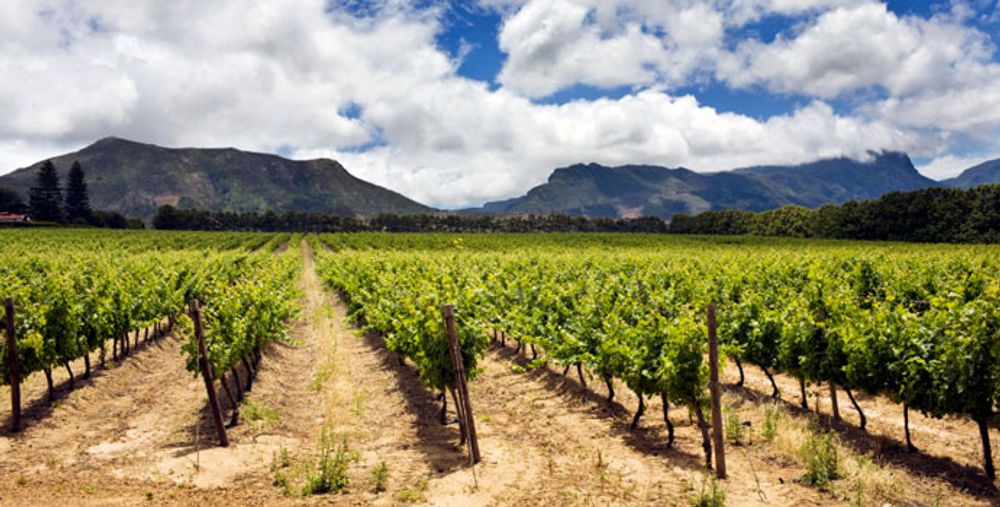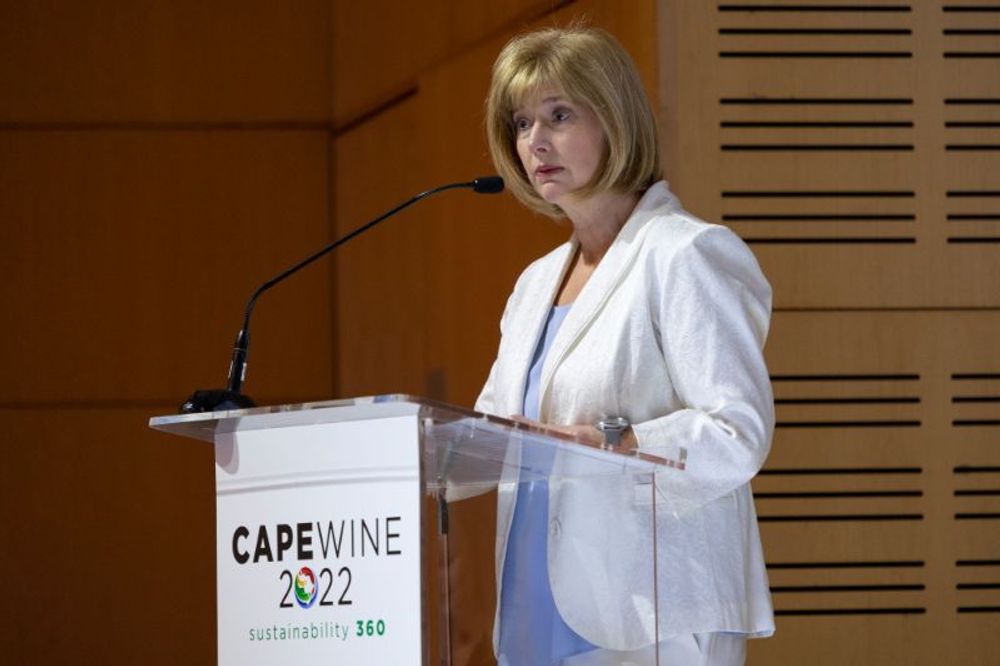The world's attention will turn to South Africa and CapeWine in September - what do you have planned?
Our theme for CapeWine 2025 is “Our Warmest Welcome”.
As South Africans we are known for our welcoming nature, our hospitality, and the way that we make anyone feel at home right from the start. Although we are all different we share the same passion for producing and distributing internationally awarded and personally rewarding wines to people around the world.
This feeling of warmth, kindness, camaraderie and passion for our craft is what we will be showcasing to visitors at CapeWine 2025.

Furthermore, we will build on past successes with a sharper focus on sustainability and inclusivity.
We’re introducing dedicated pavilions for organic wines, as well as a spotlight on emerging black-owned wineries to reflect our industry’s diversity. We are proud to also introduce Saverglass SA as a new sponsor to the show who will host a meeting lounge for all exhibitors.
What are some of the highlights of the seminars and masterclasses taking place?
Expect our highly popular masterclasses in the John Deere Formal Seminar area with a strong emphasis on storytelling to connect visitors with the people and places behind our wines. For this show, we will be offering a total of six seminars, two per day.
The Amorim Speaker’s Corner will host 10 dynamic sessions in which we unpack some of the current hot topics in our industry.
What steps are you taking to help buyers make the most of their visit?
We know that a trip to South Africa takes a lot of time out of one’s calendar and, of course, some budget. Flight costs have risen exponentially and this is why we encourage buyers to book their flights sooner rather than later to get the most favourable rates.

Cape Wine sees leading buyers from all over the world fly into South Africa for this crucial event
To help with budgets, we have negotiated excellent rates for accommodation throughout the week of CapeWine with our partners at iCommodate. There is a wide range of accommodation options in the winelands as well as in Cape Town within walking distance of the show space. There is also an extensive events calendar which interested buyers can be invited onto.
A visit to the Cape winelands is undoubtedly an unforgettable experience and the South African wine industry is excited to put on a show in welcoming guests from around the world to experience our hospitality, unrivalled scenery and vinous offering.
Furthermore a digital catalogue will be made available to all attendees upfront in order to ensure that your days at CapeWine are spent in a focused manner, allowing you to engage upfront with producers to set meetings and attend tastings and seminars that they find of interest.
What are the key trends driving the South African industry forward in terms of styles of regions, viticulture and sustainablity that will be covered at the show?
Key themes for 2025 include sustainability, with a focus on eco-friendly winemaking and climate resilience; diversity, showcasing the breadth of our producers and grape varieties; and innovation, highlighting cutting-edge techniques and new wine styles. We’ll also emphasize the cultural and historical narratives of our wine regions, connecting visitors with the stories of Stellenbosch, Swartland, and beyond. Inclusivity will be a thread throughout, amplifying underrepresented voices in the industry.
2025 also marks the centenary celebration of Pinotage, South Africa’s signature grape, making this harvest even more meaningful for the local wine community and export markets. Expect a lot of excitement around this.
How is the 2025 harvest looking like in terms of volume and quality and prices?

The 2025 South African harvest is below average in terms of production but with great quality fruit
The 2025 wine grape harvest has been characterised by exceptional fruit quality, thanks to sustained mild and dry conditions that delivered grapes of superb balance, flavour concentration, and structure, hallmarks of premium wine production.
Moderate weather patterns during bunch and berry development promoted even fruit set. Despite isolated challenges such as brief heat peaks in December and January, vineyards showed vigorous growth with relatively low disease pressure. While production remains below long-term averages due to a shrinking vineyard footprint, the focus has shifted to driving premiumisation, and this year’s vintage is a strong step in that direction. Despite varying volumes, all wine-growing regions reported above-average to exceptional quality, with unique regional expressions shining through
On the global front, the vintage arrives at an opportune time as demand for premium, sustainably produced wines continues to rise.
What are the main challenges facing the industry and what steps is the sector doing to overcome them?
The challenges faced by the South African wine industry don’t differ much at all from those that are experienced by our international counterparts. Decline in demand is a reality, though it seems that for the most part South African wine exports seem to be stable with marginal value growth, but growth none-the-less. Trade wars also seem to be a reality faced by wine producers globally and there is a lot of uncertainty surrounding some of our key markets.

Wines of South Africa's chief executive Siobhan Thompson will be setting out the agenda for South African wine at the 2025 Cape Wine event
The South African wine industry has over recent years and months been undergoing some major structural changes with lead body, South Africa Wine taking the lead in operational matters. Strategies have been reviewed and extensive introspection should lead to a more streamlined approach where the industry can be more aligned and have clear, attainable goals on a range of levels, including its sustainability focus, inclusivity practices, exports and innovation, to name a few.
A lot of hard work and dedication has gone into this and we believe that with the correct implementation and clear focus, this could take our industry to the next level, allowing for growth, premiumisation and a single-voice of authority.
What are the biggest potential areas for growth?
The categories that hold opportunity for the South African wine industry include our white wines, in particular Chenin Blanc, however our Chardonnays are making a name for themselves internationally and Sauvignon Blanc is giving producers from other countries a run for their money.
Additionally, Cap Classique seems to be setting the bar in terms of offering a quality sparkling product at an affordable price point.
* To find out more about Cape Wine and what is taking place go to its website here.






























